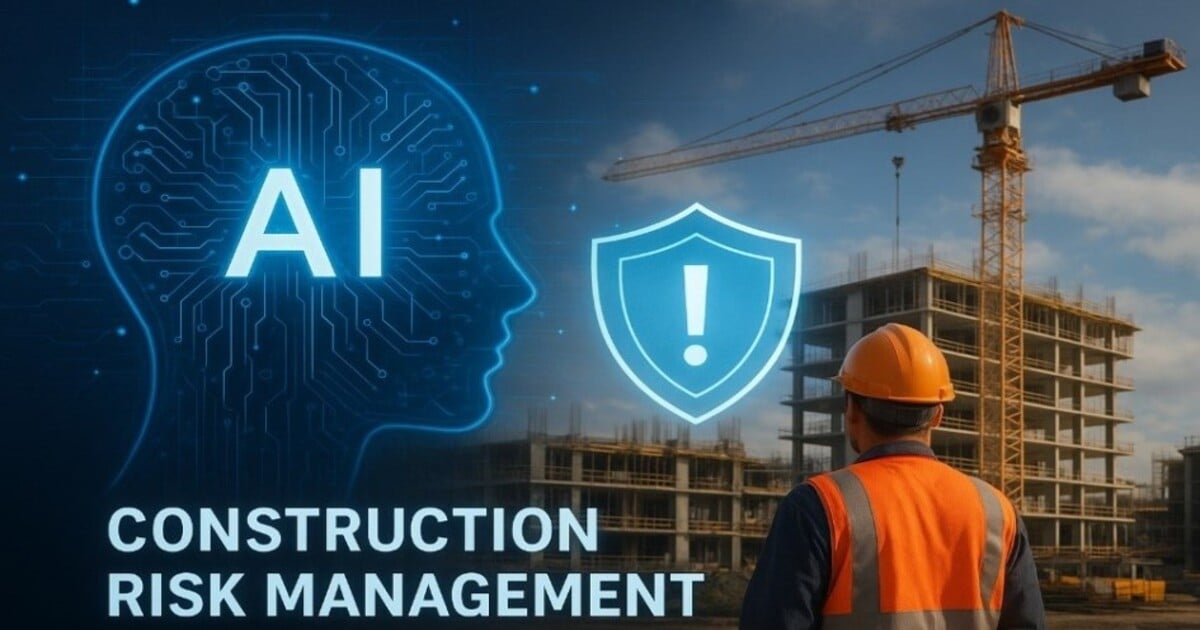- 3.1Impact Factor
- 4.4CiteScore
- 15 daysTime to First Decision
Artificial Intelligence (AI) for Construction Risk Management
This special issue belongs to the section “Construction Management, and Computers & Digitization“.
Special Issue Information
Dear Colleagues,
This Special Issue examines the integration of Artificial Intelligence (AI) during the construction phase, emphasising how intelligent technologies can enhance coordination, automation, and risk management throughout project delivery, particularly in digital and BIM-enabled construction environments. The issue particularly focuses on how AI-driven tools support proactive identification and management of cost, time, safety, and quality risks in complex construction environments. The Special Issue includes, but is not limited to, the following topics addressing technical advancements, implementation frameworks, and the socio-technical implications of AI-enabled construction risk management:
Clash Detection and Coordination; Construction Sequencing and 4D Simulation; 5D BIM and Predictive Cost Control; Progress Tracking and Site Monitoring; Quality and Defect Detection; Safety Management and Risk Prediction; Construction Logistics and Resource Optimisation; Digital Manufacturing and Offsite Construction; Robotics and Automated Assembly; AI in Contract Administration; Data Analytics for Productivity Measurement; Generative AI for Construction Planning; Integration with IoT and Sensor Data; AI for Sustainability and Waste Reduction; Digital Twin for Construction Control and Feedback; Risk Assessment and AI Reliability; Ethical and Legal Issues in AI-Enabled Construction; Delay and Cost Overruns; Time and Scheduling Management.
Dr. Guillermo Aranda-Mena
Dr. Behzad Abbasnejad
Dr. Alireza Ahankoob
Guest Editors
Manuscript Submission Information
Manuscripts should be submitted online at www.mdpi.com by registering and logging in to this website. Once you are registered, click here to go to the submission form. Manuscripts can be submitted until the deadline. All submissions that pass pre-check are peer-reviewed. Accepted papers will be published continuously in the journal (as soon as accepted) and will be listed together on the special issue website. Research articles, review articles as well as short communications are invited. For planned papers, a title and short abstract (about 250 words) can be sent to the Editorial Office for assessment.
Submitted manuscripts should not have been published previously, nor be under consideration for publication elsewhere (except conference proceedings papers). All manuscripts are thoroughly refereed through a single-blind peer-review process. A guide for authors and other relevant information for submission of manuscripts is available on the Instructions for Authors page. Buildings is an international peer-reviewed open access semimonthly journal published by MDPI.
Please visit the Instructions for Authors page before submitting a manuscript. The Article Processing Charge (APC) for publication in this open access journal is 2600 CHF (Swiss Francs). Submitted papers should be well formatted and use good English. Authors may use MDPI's English editing service prior to publication or during author revisions.
Keywords
- AI uses in Construction Planning and Design
- Gen AI for Construction Visualisation
- Gen AI for clash detection
- Gen AI for supply chain management
- Gen AI in project scheduling including Gant Charts and LOB
- risk associated with Gen AI
- legal framework in construction Gen AI practice
- Gen AI and Virtual Reality

Benefits of Publishing in a Special Issue
- Ease of navigation: Grouping papers by topic helps scholars navigate broad scope journals more efficiently.
- Greater discoverability: Special Issues support the reach and impact of scientific research. Articles in Special Issues are more discoverable and cited more frequently.
- Expansion of research network: Special Issues facilitate connections among authors, fostering scientific collaborations.
- External promotion: Articles in Special Issues are often promoted through the journal's social media, increasing their visibility.
- e-Book format: Special Issues with more than 10 articles can be published as dedicated e-books, ensuring wide and rapid dissemination.

